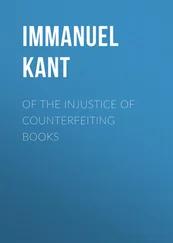General Remark
On the Transition from Rational Psychology to Cosmology.
The proposition, “I think,” or, “I exist thinking,” is an empirical proposition. But such a proposition must be based on empirical intuition, and the object cogitated as a phenomenon; and thus our theory appears to maintain that the soul, even in thought, is merely a phenomenon; and in this way our consciousness itself, in fact, abuts upon nothing.
Thought, per se, is merely the purely spontaneous logical function which operates to connect the manifold of a possible intuition; and it does not represent the subject of consciousness as a phenomenon — for this reason alone, that it pays no attention to the question whether the mode of intuiting it is sensuous or intellectual. I therefore do not represent myself in thought either as I am, or as I appear to myself; I merely cogitate myself as an object in general, of the mode of intuiting which I make abstraction. When I represent myself as the subject of thought, or as the ground of thought, these modes of representation are not related to the categories of substance or of cause; for these are functions of thought applicable only to our sensuous intuition. The application of these categories to the Ego would, however, be necessary, if I wished to make myself an object of knowledge. But I wish to be conscious of myself only as thinking; in what mode my Self is given in intuition, I do not consider, and it may be that I, who think, am a phenomenon — although not in so far as I am a thinking being; but in the consciousness of myself in mere thought I am a being, though this consciousness does not present to me any property of this being as material for thought.
But the proposition, “I think,” in so far as it declares, “I exist thinking,” is not the mere representation of a logical function. It determines the subject (which is in this case an object also) in relation to existence; and it cannot be given without the aid of the internal sense, whose intuition presents to us an object, not as a thing in itself, but always as a phenomenon. In this proposition there is therefore something more to be found than the mere spontaneity of thought; there is also the receptivity of intuition, that is, my thought of myself applied to the empirical intuition of myself. Now, in this intuition the thinking self must seek the conditions of the employment of its logical functions as categories of substance, cause, and so forth; not merely for the purpose of distinguishing itself as an object in itself by means of the representation “I,” but also for the purpose of determining the mode of its existence, that is, of cognizing itself as noumenon. But this is impossible, for the internal empirical intuition is sensuous, and presents us with nothing but phenomenal data, which do not assist the object of pure consciousness in its attempt to cognize itself as a separate existence, but are useful only as contributions to experience.
But, let it be granted that we could discover, not in experience, but in certain firmly-established a priori laws of the use of pure reason — laws relating to our existence, authority to consider ourselves as legislating a priori in relation to our own existence and as determining this existence; we should, on this supposition, find ourselves possessed of a spontaneity, by which our actual existence would be determinable, without the aid of the conditions of empirical intuition. We should also become aware that in the consciousness of our existence there was an a priori content, which would serve to determine our own existence — an existence only sensuously determinable — relatively, however, to a certain internal faculty in relation to an intelligible world.
But this would not give the least help to the attempts of rational psychology. For this wonderful faculty, which the consciousness of the moral law in me reveals, would present me with a principle of the determination of my own existence which is purely intellectual — but by what predicates? By none other than those which are given in sensuous intuition. Thus I should find myself in the same position in rational psychology which I formerly occupied, that is to say, I should find myself still in need of sensuous intuitions, in order to give significance to my conceptions of substance and cause, by means of which alone I can possess a knowledge of myself: but these intuitions can never raise me above the sphere of experience. I should be justified, however, in applying these conceptions, in regard to their practical use, which is always directed to objects of experience — in conformity with their analogical significance when employed theoretically — to freedom and its subject. At the same time, I should understand by them merely the logical functions of subject and predicate, of principle and consequence, in conformity with which all actions are so determined, that they are capable of being explained along with the laws of nature, conformably to the categories of substance and cause, although they originate from a very different principle. We have made these observations for the purpose of guarding against misunderstanding, to which the doctrine of our intuition of self as a phenomenon is exposed. We shall have occasion to perceive their utility in the sequel.
42 The reader, who may not so easily perceive the psychological sense of these expressions, taken here in their transcendental abstraction, and cannot guess why the latter attribute of the soul belongs to the category of existence, will find the expressions sufficiently explained and justified in the sequel. I have, moreover, to apologize for the Latin terms which have been employed,instead of their German synonyms, contrary to the rules of correct writing. But I judged it better to sacrifice elegance to perspicuity.
43 [”I think, therefore I am.”]
44 Thought is taken in the two premisses in two totally different senses. In the major it is considered as relating and applying to objects in general, consequently to objects of intuition also. In the minor, we understand it as relating merely to self-consciousness. In this sense, we do not cogitate an object, but merely the relation to the self-consciousness of the subject, as the form of thought. In the former premiss we speak of things which cannot be cogitated otherwise than as subjects. In the second, we do not speak of things, but of thought all objects being abstracted), in which the Ego is always the subject of consciousness. Hence the conclusion cannot be, “I cannot exist otherwise than as subject”; but only “I can, in cogitating my existence, employ my Ego only as the subject of the judgement.” But this is an identical proposition, and throws no light on the mode of my existence.
45 Clearness is not, as logicians maintain, the consciousness of a representation. For a certain degree of consciousness, which may not, however, be sufficient for recollection, is to be met with in many dim representations. For without any consciousness at all, we should not be able to recognize any difference in the obscure representations we connect; as we really can do with many conceptions, such as those of right and justice, and those of the musician, who strikes at once several notes in improvising a piece of music. But a representation is clear, in which our consciousness is sufficient for the consciousness of the difference of this representation from others. If we are only conscious that there is a difference, but are not conscious of the difference — that is, what the difference is — the representation must be termed obscure. There is, consequently, an infinite series of degrees of consciousness down to its entire disappearance.
46 There are some who think they have done enough to establish a new possibility in the mode of the existence of souls, when they have shown that there is no contradiction in their hypotheses on this subject. Such are those who affirm the possibility of thought — of which they have no other knowledge than what they derive from its use in connecting empirical intuitions presented in this our human life — after this life has ceased. But it is very easy to embarrass them by the introduction of counter-possibilities, which rest upon quite as good a foundation. Such, for example, is the possibility of the division of a simple substance into several substances; and conversely, of the coalition of several into one simple substance. For, although divisibility presupposes composition, it does not necessarily require a composition of substances, but only of the degrees (of the several faculties) of one and the same substance. Now we can cogitate all the powers and faculties of the soul — even that of consciousness — as diminished by one half, the substance still remaining. In the same way we can represent to ourselves without contradiction, this obliterated half as preserved, not in the soul, but without it; and we can believe that, as in this case every thing that is real in the soul, and has a degree — consequently its entire existence — has been halved, a particular substance would arise out of the soul. For the multiplicity, which has been divided, formerly existed, but not as a multiplicity of substances, but of every reality as the quantum of existence in it; and the unity of substance was merely a mode of existence, which by this division alone has been transformed into a plurality of subsistence. In the same manner several simple substances might coalesce into one, without anything being lost except the plurality of subsistence, inasmuch as the one substance would contain the degree of reality of all the former substances. Perhaps, indeed, the simple substances, which appear under the form of matter, might (not indeed by a mechanical or chemical influence upon each other, but by an unknown influence, of which the former would be but the phenomenal appearance), by means of such a dynamical division of the parent-souls, as intensive quantities, produce other souls, while the former repaired the loss thus sustained with new matter of the same sort. I am far from allowing any value to such chimeras; and the principles of our analytic have clearly proved that no other than an empirical use of the categories — that of substance, for example — is possible. But if the rationalist is bold enough to construct, on the mere authority of the faculty of thought — without any intuition, whereby an object is given — a self-subsistent being, merely because the unity of apperception in thought cannot allow him to believe it a composite being, instead of declaring, as he ought to do, that he is unable to explain the possibility of a thinking nature; what ought to hinder the materialist, with as complete an independence of experience, to employ the principle of the rationalist in a directly opposite manner — still preserving the formal unity required by his opponent?
Читать дальше












